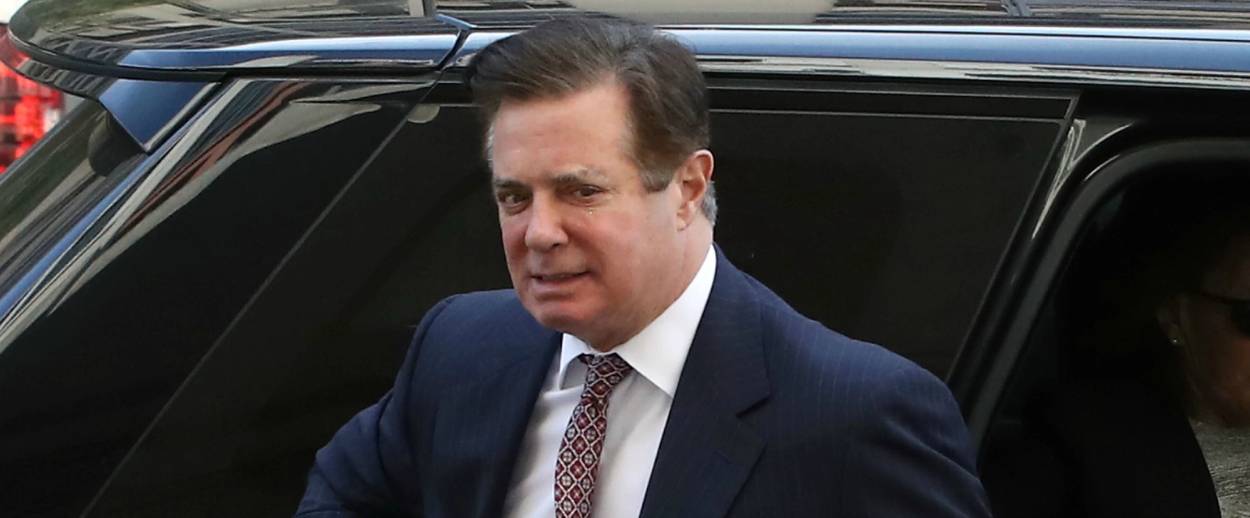A Ukrainian Insider on Manafort, Man About Town in Kiev
The trial reveals a Manafort instrumental in creating the very ‘swamp’ that his candidate Donald Trump vowed to clean up.




Government prosecutors rested their case yesterday in the high-profile tax- and bank-fraud trial of former Trump presidential campaign chief Paul Manafort. To an outside observer, it may have looked like the prosecution’s argument rested on Manafort’s failure to file taxes for millions in income, or the misleading statements he made applying for bank loans. But this is only part of the story. Looming large in the background is Manafort’s work on behalf of pro-Kremlin Ukrainian political elites in the now defunct Party of Regions and his business and lobbying relationship with Putin’s close associate, the Russian oligarch Oleg Deripaska.
In the first case brought by special counsel Robert Mueller as part of his mandate in the wide-ranging probe into Russian interference in the 2016 presidential election, testimony from more than two dozen witnesses depicts Manafort leading an extraordinary lifestyle. Most incredibly, Manafort managed to keep up his man-about-town habits even after the consulting fees collected from his client and former Ukranian President Viktor Yanukovych evaporated when Yanukovych fled to Moscow in the wake of the Maidan revolution.
Manafort, you may recall, famously declined to take a salary for his role running the Trump campaign. But that act, once posited as a public demonstration of apparent civic-mindednesss, must now be seen in light of the trial’s revelations about the campaign chief’s serious cash flow issues. In this context, Manafort’s willingness to run the campaign for free looks more like an attempt to monetize his position within the campaign, as many have long alleged, than an act of selfless service or political commitment. It was a brazen risk taken by a man who spent decades taking brazen risks, and in this, it mirrored the extreme appetite for risk of the man whose campaign he ran.
Most of all, what the trial reveals is a Manafort instrumental in creating the very “swamp” that his candidate Donald Trump vowed to clean up before crowds roaring with outraged approval.
But as the Manafort trial winds down to a conclusion, we might take a moment to look back at the figure the former Trump campaign chief cut in Kiev.
The portrait of Manafort that has emerged from the trial is unerringly familiar to those of us Ukraine hands, journalists and political analysts who have observed his machinations in Kiev. Myriad articles have been written about his swaggering and self-confident affectation during the proceedings, his telltale tics, and the part in his hair. In my conversations with his former colleagues and employees around Kiev, Manafort continues to be widely respected and admired, with many of them still claiming that he was the greatest political operator of his generation.
Manafort spent quite a bit of time in Kiev, typically at the city’s high-end hotels and their immediate environs. There, he would have room service brought to his presidential suite while he churned out memos and conducted detailed polling surveys into the wee hours of the morning. As much as Manafort helped to “Ukrainianize“ American politics, he brought the cutting edge tools of American political consulting to Ukraine. It started after Donbass oligarch Rinat Akhmetov contracted the services of Davis Manafort Partners to rehabilitate Ukraine’s corrupt former president Yanukovych and his The Party of the Regions. In the wake of Yanukovych’s electoral defeat, Manafort brought professional polling and sampling techniques to Ukraine and in the process professionalized political consulting turning it into something between a business and a racket.
The smartest observers of the Manafort case, such as Franklin Foer, whose concerted coverage has been an invaluable service, have understood it for what it really is: a symbolic trial against an American kleptocracy that had formerly been thought of as relegated to the regions of Eastern Europe where a character like Manafort would find business partners.
Vladislav Davidzon is Tablet’s European culture correspondent and a Ukrainian-American writer, translator, and critic. He is the Chief Editor of The Odessa Review and a Non-Resident Fellow at the Atlantic Council. He was born in Tashkent, Uzbekistan, and lives in Paris.